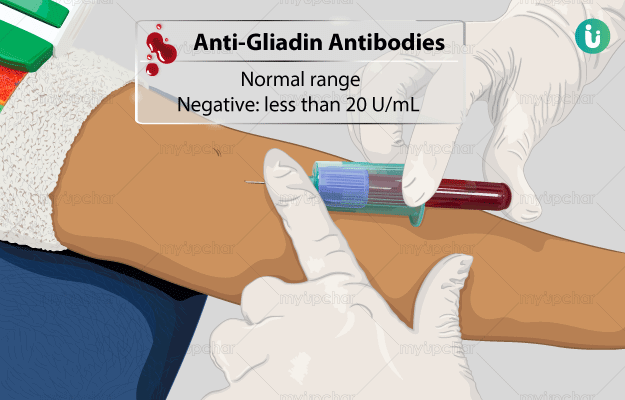What is an Anti-Gliadin Antibodies (AGA) test?
Anti-gliadin antibodies (AGA) test is used to determine if your body is producing antibodies against gliadin - a protein present in cereals such as wheat, rye and barley.
Gliadin is actually a part of a bigger protein called gluten, which helps foods to maintain their structure. Gluten-containing whole grains are highly beneficial for our body. They prevent the development of type 2 diabetes and reduce the risk of heart diseases.
However, some individuals react to gluten differently. Their body recognises gliadin as a toxin and produces antibodies to neutralise it. Presence of anti-gliadin antibodies may be an indication of celiac disease - an autoimmune disorder which causes irritation or inflammation in the gut every time the person eats gluten. These antibodies may also be produced in the body due to a non-celiac gluten sensitivity
































